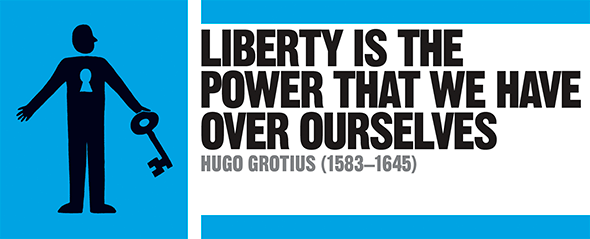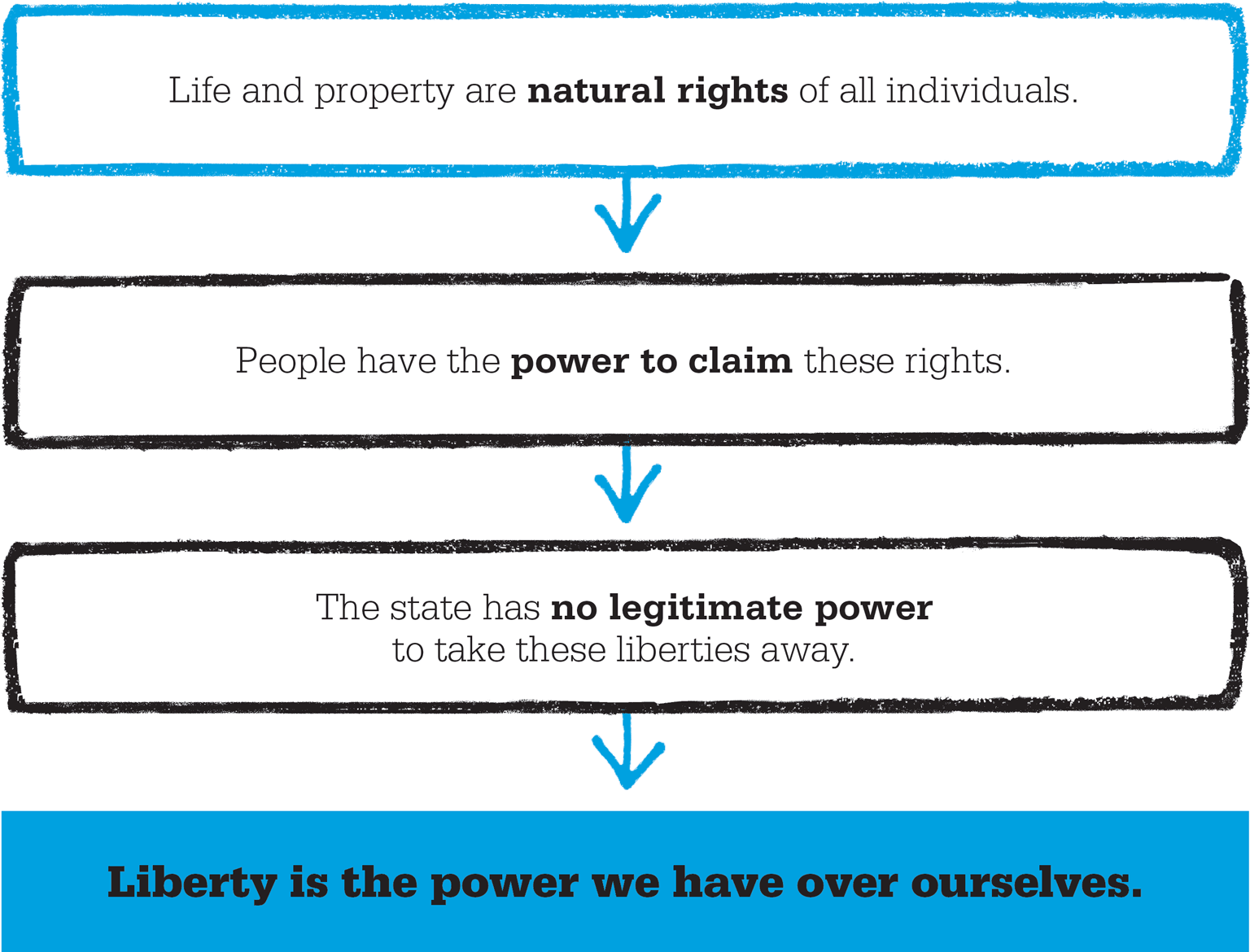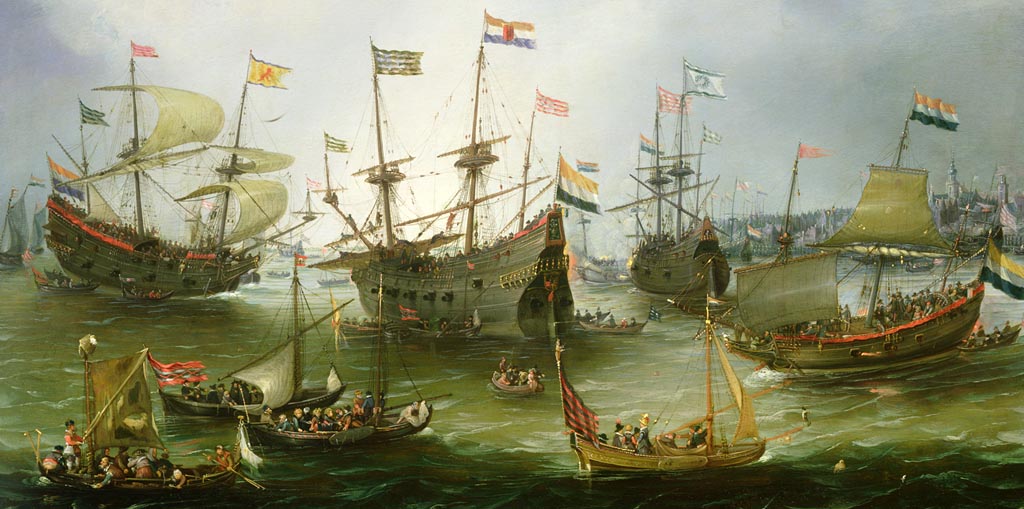
IN CONTEXT
Natural law
Individual rights
1517 The protection of liberty is seen as the fundamental political task of a republic by Niccolò Machiavelli in his Discourses.
1532 Francisco de Vitoria lectures on the rights of people at the University of Salamanca.
1789 The French Revolution—with its demands for liberty, equality, and fraternity—transforms France and the rest of Europe.
1958 Political theorist Isaiah Berlin lectures on the Two Concepts of Liberty: negative liberty (non-interference and the opportunity to be free) and positive liberty (the ability to be one’s own master).
The notions of individual liberty and individual rights came to the forefront relatively late in human history. During the medieval era, rights were collective and judged in relation to natural or divine law. Individuals did not possess rights: rights flowed from nature or God. Liberty was rarely discussed in relation to individuals; rather, individuals had a duty to carry out God’s plan. In the 16th century, at the University of Salamanca, first Francisco de Vitoria and later Francisco Suárez had begun to theorize on the natural rights of individuals. However, it was Hugo Grotius who decisively changed medieval thinking by clearly asserting that liberty and rights were in the possession of individuals. Grotius redefined natural law, and laid out a new conception of rights and liberty. The idea of divine influence on natural law was discarded. Instead, the study of human nature was seen as sufficient to inform policy and lawmakers. Put simply, human behavior produces the natural law. People have certain natural rights that are intrinsic to them, and which are not bestowed by God or the sovereign. Rather, liberty is a natural right.

Power over ourselves
By viewing liberty as the power that people have over themselves, Grotius distinguished between a person’s ability to do something and their freedom from constraints. Since man has a right to life and property, Grotius argued, he is also granted the powers to take the necessary action to fulfill those rights. The state does not have legitimate superior authority in such circumstances. Thus, by connecting rights with the individual, the concept of individual freedom, or liberty, becomes more than just a question of free will. It also includes the freedom to act without constraints. This focus on human agency marked a clear break from the thinking of earlier times.
Grotius regarded rights as abilities or powers possessed by individuals, and his philosophy also allowed for the commodification of rights. Rights could be “traded” with, for example, a sovereign. In this case, the power of the state would come from the voluntary transfer of rights by individuals. Grotius distinguished between two classes of relations. Relations of unequals could be between “Parents and Children, Masters and Servants, King and Subject,” while relations between “Brothers, Citizens, Friends, and Allies” were relations of equals.
Grotius’s idea that people are natural bearers of rights has become a cornerstone for the theory of liberalism. However, his belief that some people have a right to superiority is surely not in line with more liberal, modern thinking.

Freedom of the seas was considered by Grotius to be a natural right, and he used this belief to justify the Regular>Dutch East India fleet breaking the monopolies set up by other nations.
HUGO GROTIUS

Hugo Grotius was born in 1583 in the city of Delft in the south of Holland during the Dutch Revolt against Spain. Considered by many to be a child prodigy, Grotius entered the University of Leiden at the age of 11, and received his doctorate when he was 16. By the age of 24, he was advocate general for Holland. During a tumultuous period in Dutch history, Grotius was sentenced to life imprisonment in Loevestein Castle for his views on restraining the powers of the Church in civil matters.
Grotius escaped to Paris, reportedly in a trunk, and there he wrote his most famous work De Jure Belli ac Pacis. Grotius is widely held to be the father of international and maritime law. His themes of natural law and individual liberty were later taken up by liberal philosophers such as John Locke.
Key works
1605 De Jure Praedae Commentarius
1609 Mare Liberum (originally part of De Jure Praedae Commentarius)
1625 De Jure Belli ac Pacis
See also: Francisco de Vitoria • Francisco Suárez • John Locke • John Stuart Mill
